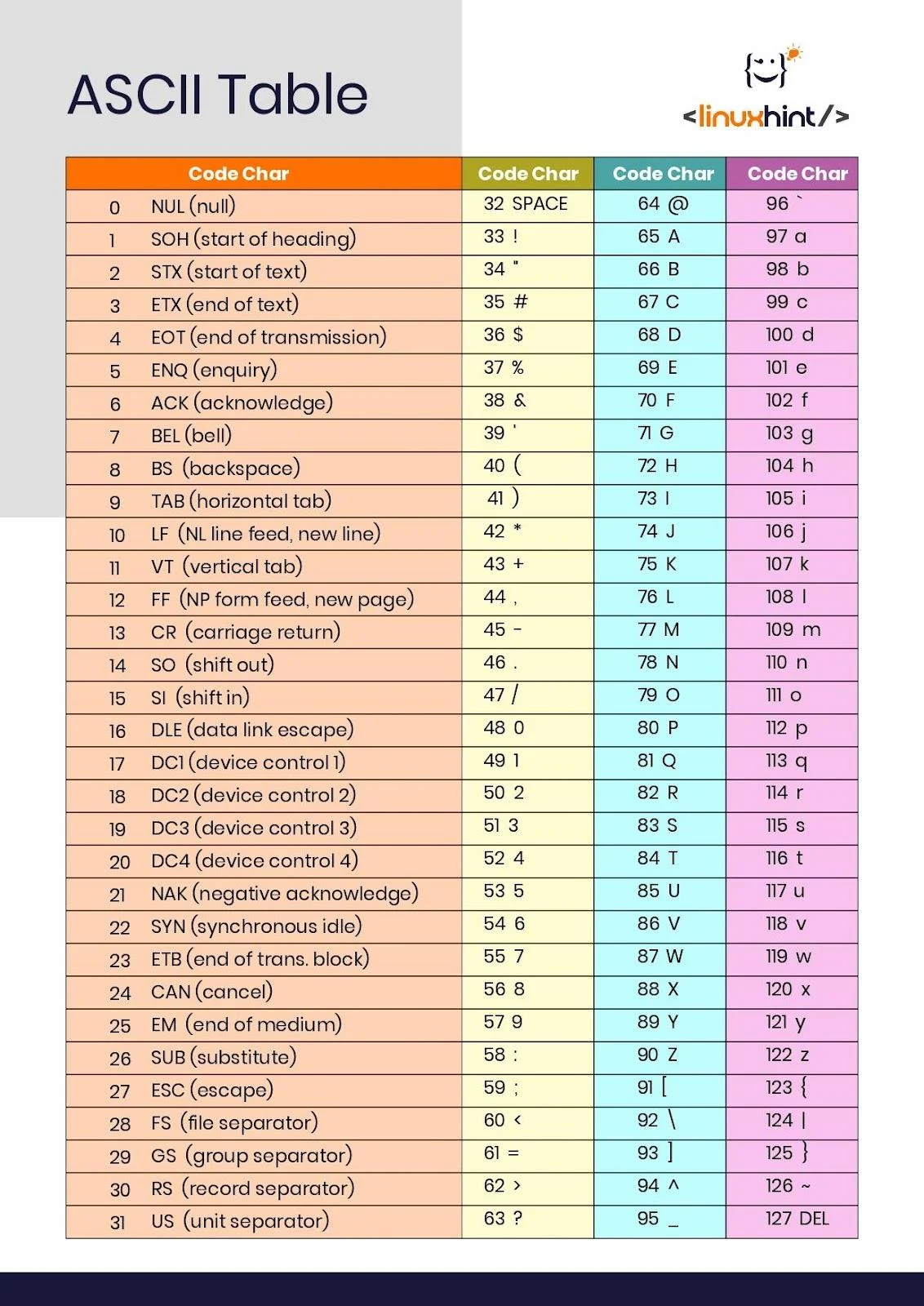ASCII (American Standard Code for Information Interchange) is a character encoding standard for digital information that was developed in the early 1960s. It is one of the earliest and widely used encoding standards for the transmission of text between computers and other electronic devices.
ASCII is based on the English alphabet and encodes 128 specific characters into seven-bit integers. The characters include the letters A-Z, the numbers 0-9, and some non-alphanumeric symbols. Special characters such as whitespace and control codes, which are used for formatting text and other computing functions, are also represented in ASCII.
ASCII is commonly used for transmitting and storing text. It is often used for programming and other text-based activities. By convention, ASCII characters are represented as a set of binary bits or bytes. Each character or symbol is represented by an eight-bit value, with the seventh and eighth bits reserved for special functions.
ASCII is widely used, as it is the standard used by most computers and digital devices to communicate with each other. While other, more complex character encoding systems such as Unicode have overtaken ASCII in recent years, ASCII remains the backbone of many computer systems.
ASCII has also been adopted for other applications, such as barcodes and the transmission of binary data between different systems. The most common use of ASCII, however, is for plain text documents. Despite its limitations, ASCII can still be used to produce text documents with impressive visual effects.





